

Clinical Science Trumpet
Newsletter of the Association of Clinical Scientists
Mustafa A. Barbhuiya, Ph.D., Editor

Vol. 44, No. 3—September, 2024
ACS ANNOUNCES THE 146TH MEETING IN PROVIDENCE
Wednesday–Saturday, May 14–17,
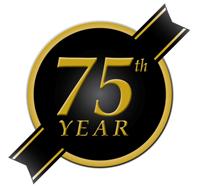
2025 • Providence, Rhode Island
by Nina Tatevian, M.D., Ph.D., FACSc, and Charles D. Hawker, Ph.D., M.B.A. FACSc
The Association of Clinical Scientists will hold its 2025 Annual Meeting in Providence, Rhode Island, May 14-17, hosted by Brown University. The Program Committee’s Chair, Nina Tatevian, M.D., Ph.D., FACSc has announced that the program will include two major themes.
On Thursday, May 15, the theme will be Advances in Women’s Health and will feature the Claude P. Brown Memorial Lecture, to be presented by Francois I. Luks, M.D., Ph.D. (J. Murray Beardsley Professor of Pediatric Surgery and Professor of Surgery, Pediatrics and Obstetrics & Gynecology). On Friday morning, May 16, the theme will be Vaccine & Novel Therapeutics for Malaria &
Tropical Diseases. In addition, the Brown Cancer Center will sponsor the Saturday morning session. The Saturday program will mostly consist of submitted abstracts from ACS members, residents, fellows, and colleagues.
The schedule for the meeting will follow the Association’s traditional format with full days on Thursday and Saturday, including an Opening Reception on Thursday evening. Friday will consist of a half day at the Brown University School of Medicine. Friday afternoon will have a cultural tour to Newport and Friday evening will be the Annual Awards Reception and Banquet, with an invited speaker. Saturday’s program will include the Annual Members Business Meeting (as a buffet
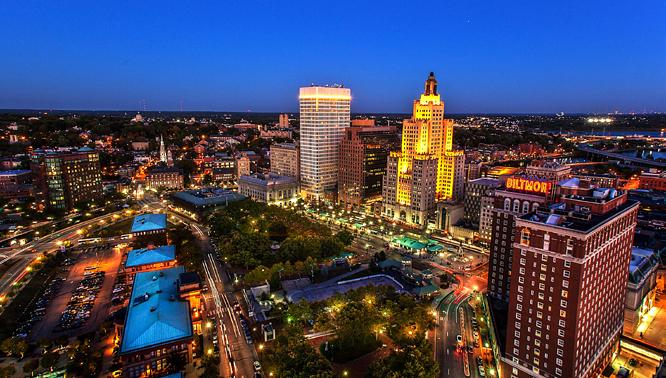
luncheon) and will conclude with the traditional Musicale and Art Show, to be held at the Grace Episcopal Church, across the street from our hotel. As an additional change of pace from typical ACS meetings, the Annual Awards Reception and Banquet will be held in the Pavilion of the Grace Episcopal Church.
Our hotel will be the historic Hotel Providence, Trademark Collection by Wyndham, 139 Mathewson Street, Providence, RI 02903 (telephone: 800 861-8990 or 401-861-8000). Details can be found in the Accommodations section of the ACS website at https:// clinicalscience.org/ and click the “Meetings” tab. The hotel is downtown, walking distance to many attractions, and directly across the street from
continued on page 2
Page 1 2025 Meeting at Providence, RI
Page 3 Accommodations & Transportation
Page 4 2025 Awardees
Page 6 Travel Grants; Sponsors & Donors
Page 7 President’s Corner; Young Fellows Section
Page 8 Excerpts from Jax
Page 14 Charlie Hawker & the Gold Headed Cane
Page 16 Interview: Dr. Fontaine
Page 18 2024 Meeting Minutes
Page 22 Trivia; The Grapevine
Page 23 Officers & Committees
Downtown Providence, RI
Providence in 2025...
the Grace Episcopal Church where we hope to have the Musicale and Art Show as mentioned above.
The Program Committee for the 2025 ACS Annual Meeting includes:
Nina Tatevian, M.D., Ph.D., Program Committee Chair
Liang Cheng, M.D.
Jessica Claus, M.D.
Christopher Crutchfield, Ph.D.
Kyle Kurek, M.D.
Jonathan Kurtis, M.D.
Geralyn Messerlian, M.D.
James Sung, M.D.
Evgeny Yakirevich, M.D.
Charles D. Hawker, Ph.D., M.B.A, FACSc (ex officio)
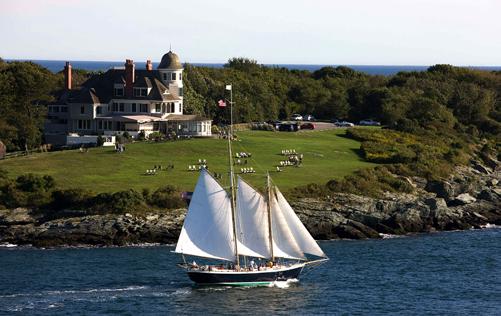
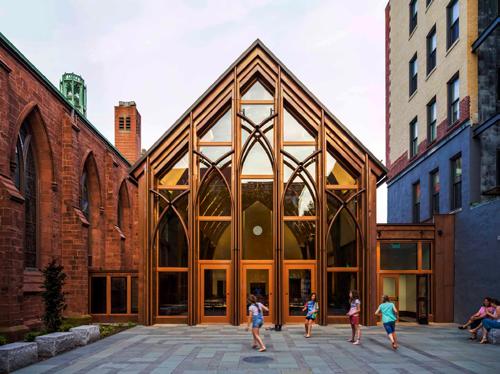
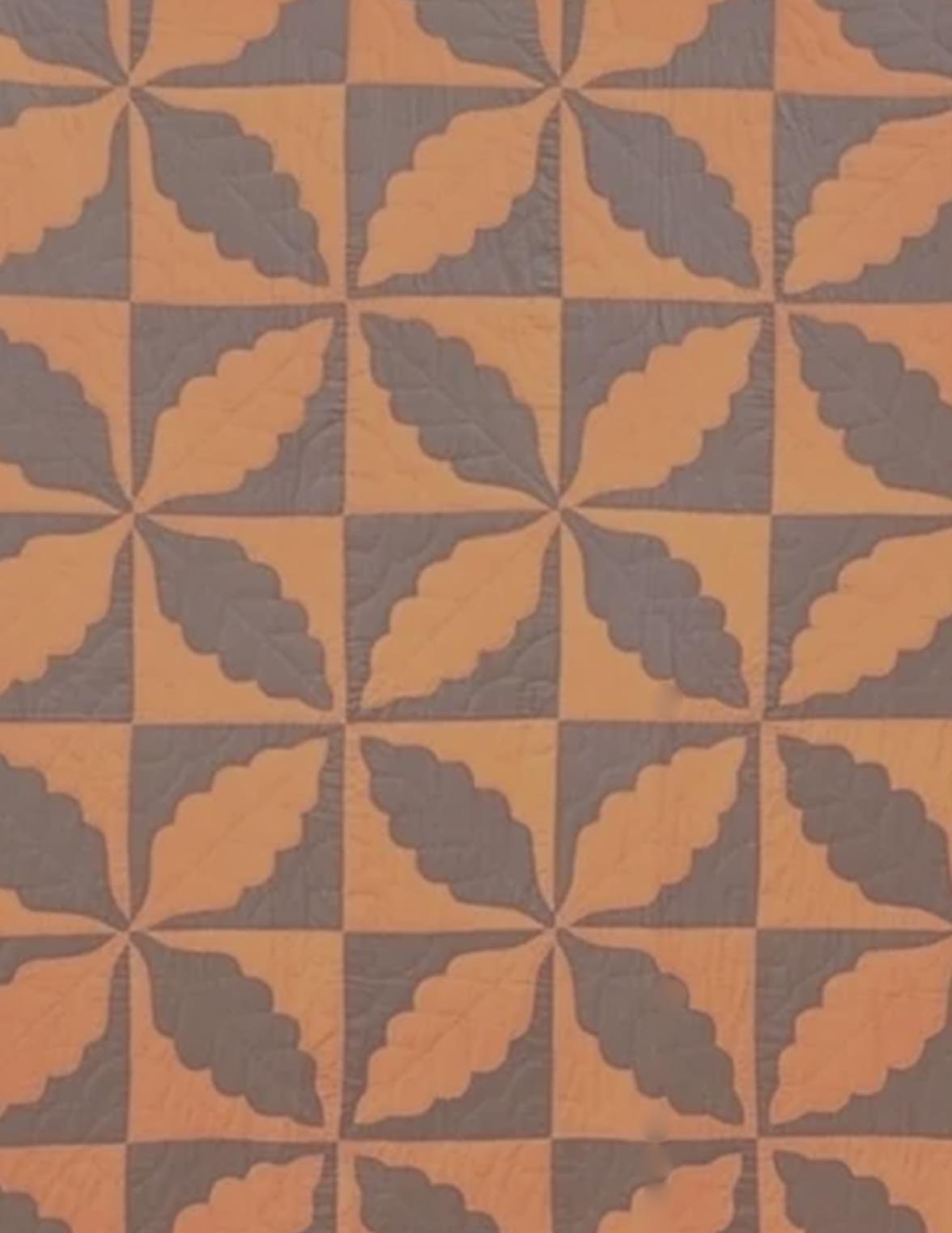
continued from page 1
The deadline for submissions of abstracts will be Sunday, February 16, 2025. Details of the submission procedure will be posted on the ACS website in October.

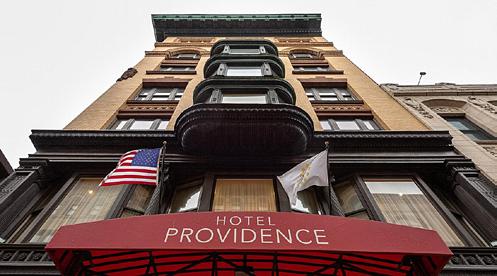

The Pavilion at Grace Episcopal Church, Providence, RI
Below: The historic Hotel Providence, Trademark Collection by Wyndham
Coastline at Newport, RI
Above: The Brown University School of Medicine
Providence in 2025…
Accommodations
The hotel for the 2025 Annual Meeting is the historic Hotel Providence, Trademark Collection by Wyndham, 139 Mathewson Street, Providence, RI 02903 (telephone: 800 861-8990 or 401-861-8000).
Fusing European flair and New England charm, the non-smoking Hotel Providence, Trademark Collection by Wyndham provides a comfortable stay with a breakfast restaurant, gym, free WiFi, and event space. There is on-site parking, although fees may apply. The hotel’s convenient downtown location is 12 miles from Rhode Island T.F. Green International Airport (PVD) and walking distance from shops and restaurants as well as the Rhode Island Convention Center. This landmark 4-star hotel is steeped in historic character dating back to the 19th century. Step inside old-world elegance and let the seasoned staff impress you with personalized service and meticulous attention to detail.
The Hotel Providence is passionate about providing stellar hospitality, and its personality comes through in all. Located in the heart of downtown Providence’s vibrant theater district, culture and passion for the arts are reflected in everything the hotel offers. Vintage furnishing, art, and classic novels are sprinkled throughout the hotel. Retire to your sophisticated guestroom or suite fitted with oil paintings from world-renowned artists and sleep
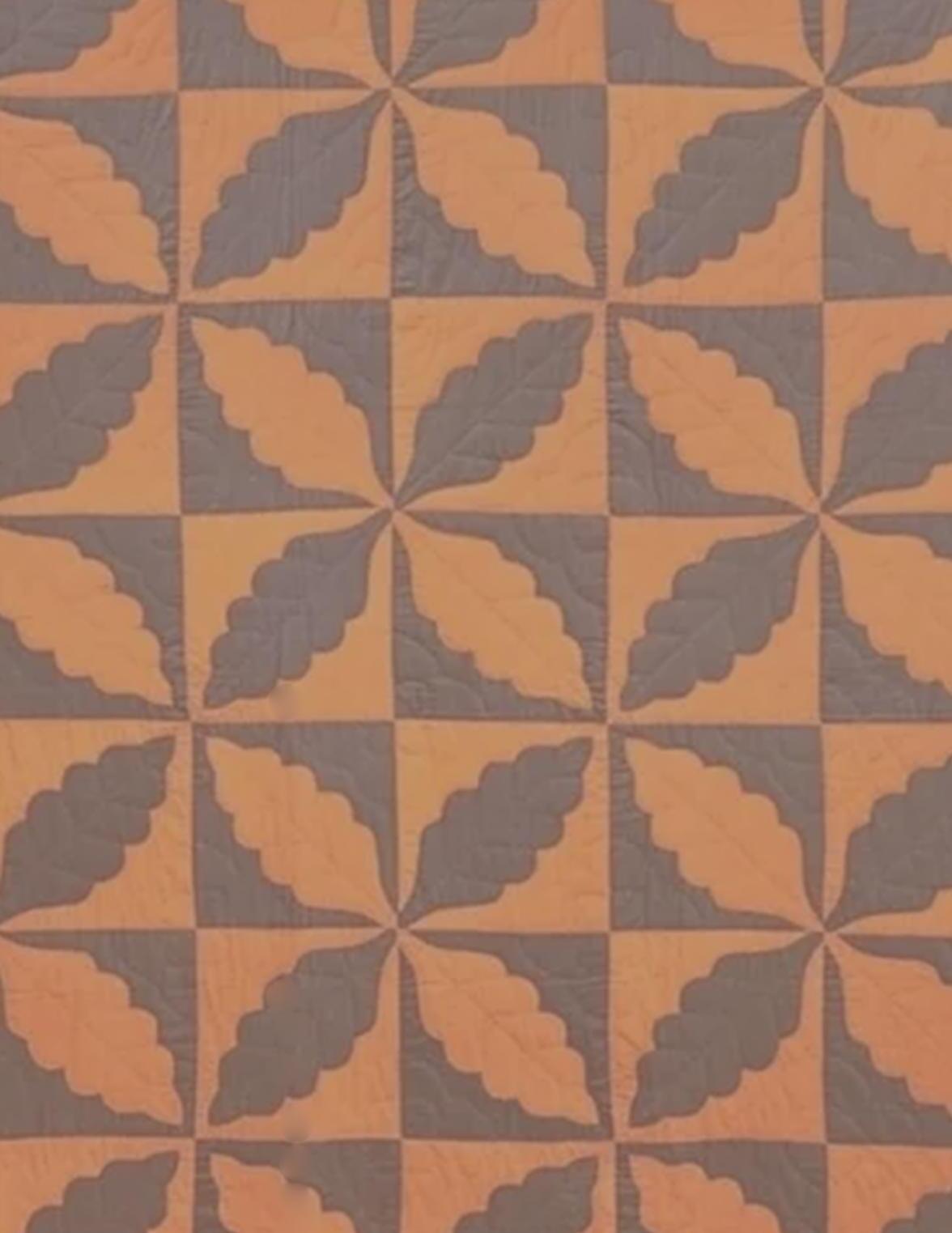
continued from page 2
soundly amid the city. Perfect for business and leisure, Hotel Providence features superior guest amenities, including a fitness studio, business center, complimentary Wi-Fi, and versatile meeting and event spaces perfect for conferences or romantic Rhode Island weddings.
The contracted rate for the ACS Annual Meeting is an excellent $199 plus tax (est. 15%) per night, single or double. The cut-off date for reservations is April 13, 2025, after which rooms in our block are not guaranteed to be available. A URL link for making reservations in the ACS block at the ACS rate will be posted on the website when it becomes available.
Transportation
Providence, RI is served by the Rhode Island TF Green International Airport (PVD). PVD is served by nine airlines, including Allegiant, American, Delta, JetBlue, Southwest, Sun Country, and United.
The Hotel Providence is 9 to 11 miles (about 15-20 minutes) from PVD, depending on the route chosen. Rental cars are available, as are various shared shuttle services. Taxis cost $29-40. One could even ride the Line 66 bus all the way in 21 minutes for $2.00. PVD has a designated pick-up area for Lyft and Uber.
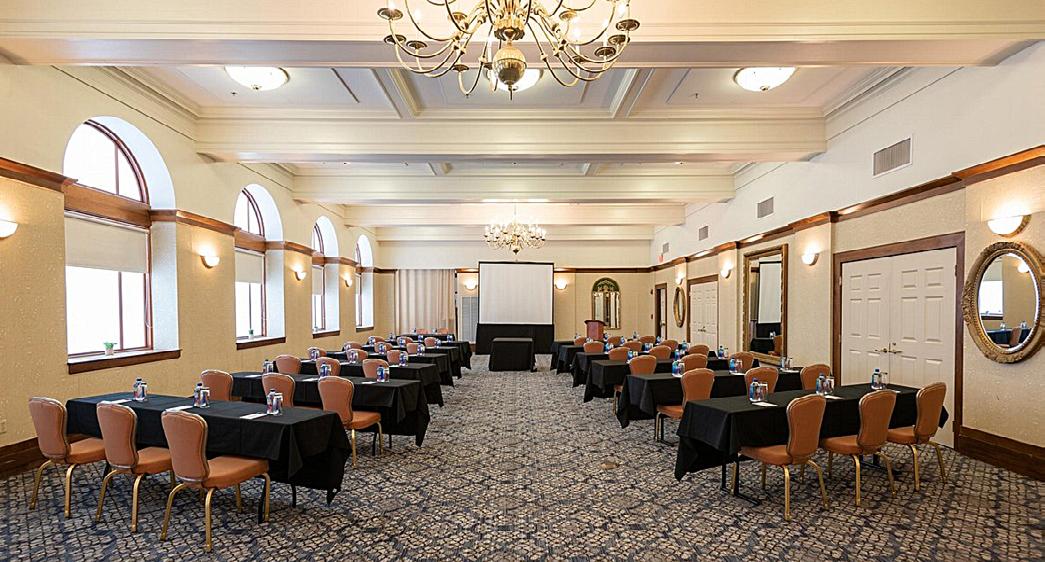
One of the meeting rooms at the Hotel Providence, Trademark Collection by Wyndham
Announcing the 2025 ACS Awardees
Young Clinical Scientist Award
HUNTER MILLER, PH.D.
Dr. Hunter Miller spent his youth in rural Tennessee and became interested in science during middle school, with a “knack” for biology and physiology.
Dr. Miller attended Murray State University in Western Kentucky, earning a major in chemistry. His favorite courses were calculus, numerical analysis, biochemistry, and analytical chemistry.


In the spring of 2016, Hunter was accepted into the Interdisciplinary Program in Biomedical Sciences at the University of Louisville in the Pharmacology and Toxicology Department. He joined Dr. Hermann Frieboes’ laboratory and became involved in research projects related to mathematical modeling of cancer to evaluate the efficacy of nanotherapeutics.
The experience as a graduate research assistant and a postdoctoral fellow while working in this interdisciplinary bioengineering laboratory allowed Hunter to develop skills in computer programming, data analysis, cell culture, confocal microscopy, and mass spectometrybased metabolomics.
“In 2022, I learned about clinical chemistry and laboratory medicine as a postdoctoral fellow. I became interested in the field due to the data it generates and the vast potential for multivariable predictive modeling for improving patient care,” says Dr. Miller
“As a first-year clinical chemistry fellow,” continued Dr. Miller, “I found the 2024 Association of Clinical Scientists meeting in Jacksonville, Florida an excellent opportunity to connect with like-minded individuals. I’m looking forward to the 2025 meeting!”
Dr. Miller has long-term research interests that involve developing and validating novel multiplex assays and building machine-learning approaches for clinical laboratory applications and biomarker discovery workflows. In particular, his interest is advancing the state of omics technology, such as mass spectrometry and nuclear magnetic resonance, towards clinical applications in cancer diagnostics and enhancing the clinical interpretability of machine-learning models in laboratory medicine.
F.W.
Sunderman, Jr. Diploma of Honor
PETER C. HU, PH.D., DABCC, FACSC
Dr. Peter Hu has been a valuable member of ACS. He served as member of the Awards Committee (20112017), Credentials Committee (2011-2013), Nominating Committee (2014-2017), Chair of the Membership Committee (2014-2015), member of the Executive Committee (20142018), President (2015-2016), Past President’s Council (2018-Present), and was the Program Committee Chair for the 2018 annual meeting in Houston, TX.

Dr. Hu is currently the Associate Dean of Research and Strategic Initiatives in the School of Health Professions (SHP) at The University of Texas MD Anderson Cancer Center, Houston, TX. He is also a Distinguished Teaching Professor with tenure and is the founding Director of the Molecular Genetic Technology and the Graduate Diagnostic Genetics Programs at MD Anderson. His research interests include cancer cytogenetics, tumor markers, and molecular diagnostics.
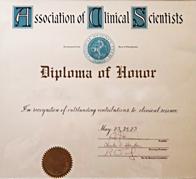
Dr. Hu holds three specialty clinical certifications in Molecular Biology, Cytogenetics, and Clinical Laboratory Science through the American Society for Clinical Pathology. He joined MD Anderson Cancer Center (MDACC) in 1995 and has worked in both clinical and academic environments. Dr. Hu has published a combined total of more than 300 abstracts, manuscripts, and book chapters. For his efforts, he has received 40 recognitions and awards and he is a member of The University of Texas Kenneth I. Shine Academy of Health Science Education.
Professionally, he has served as President, Board of Directors, and other key leadership positions for various professional societies including Association of Clinical Scientists, National Accrediting Agency for Clinical Laboratory Sciences, Association for Genetic Technologists, and American Society for Clinical Laboratory Science. In addition, he has served as a clinical laboratory science programs inspector for the past 20 years and has inspected clinical laboratory science programs throughout the country and abroad. He is internationally recognized for his consulting work in Cuba, China, Qatar, and his recent efforts in Africa through MD Anderson’s Global Academic Programs. Dr. Hu regularly presents at state, national, and international conferences on topics ranging from clinical laboratory sciences to education.
Dr. Peter Hu
Dr. Hunter Miller

2025 ACS Awardees (continued)
Gold-Headed Cane Award
NINA TATEVIAN, M.D., PH.D., FACSC
Dr. Nina Tatevian is honored to be the recipient of the Association of Clinical Scientists (ACS) Gold Headed Cane Award in 2025. Dr. Tatevian has a long history with the ACS, starting in 1997 when she, as a pathology resident at Brown University, first presented a paper at the Annual Meeting and shortly thereafter became a member of ACS.
Over the years she presented numerous papers on pediatric and perinatal pathology topics at annual ACS meetings. She served ACS as Vice President in 2005, President in 2006, chaired the Membership Committee in 2005-2007, was a member of the of the Scientific Council from 2003 to 2012, and has been a member of the Executive Committee since 2008.


However, the most significant contribution Dr. Tatevian made to the ACS was her relentless work as the Editor-in-Chief of the Association’s journal, the Annals of Clinical and Laboratory Science. She started in 2011 and continued until June 2024, when she became the Senior Associate Editor, passing the “torch” to the younger generation. Dr. Tatevian was awarded by ACS in 2012 with the “Diploma of Honor” and honored in 2016 with title “Clinical Scientist of the Year.”
During her career she has worked as an Assistant Professor in the Pathology Department of Texas Children’s Hospital (Baylor College of Medicine), then Associate Professor, and later Professor in the Pathology Department of the University of Texas McGovern Medical School at Houston.
Nina is now Professor of Pathology in the Warren Alpert School of Medicine of Brown University. She is a very wellrespected clinician in the medical community. In addition to her very busy clinical practice, she mentors medical students, college students, residents, and fellows, earning numerous Teaching Excellence Awards. Many of her trainees graduated with prestigious fellowships and are now authorities in different pathology fields; Dr. Tatevian takes pride in their success! Last, but not least, Dr. Tatevian is an active member of the Society for Pediatric Pathology, having served on multiple committees for many years, as well as on the Board of Directors for three years. Over the years she actively participated in multiple research projects, was a coinvestigator in numerous grants, published over 50 papers, and presented over 100 abstracts at national and international meetings.
Clinical Scientist of the Year
PHILIP R. FOULIS, M.D., M.P.H., FACSC

Dr. Philip “Phil” Foulis is an anatomic and clinical pathologist with subspecialty certification in hematopathology and clinical informatics. He is a professor in the Department of Pathology and Cell Biology, Morsani College of Medicine with appointments in the Department of Internal Medicine and College of Public Health. He received his MD degree from McMaster University, Hamilton, Ontario Canada, and a residency at the University of Pittsburgh, Pittsburgh, Pennsylvania. He later received a master’s in public health in Epidemiology from the College of Public Health, University of South Florida, Tampa, Florida.
Dr. Foulis’ practice is at the James A. Haley Veterans’ Hospital in Tampa, Florida with an academic affiliation with the University of South Florida. Currently, a portion of his duties are as a member of the national deployment of a new electronic health record for the Veterans’ Health Administration in conjunction with the Department of Defense. His clinical duties include cytopathology, hematopathology, and medical informatics. He also teaches medical students, residents, fellows, and undergraduate students. His research activities include residents, fellows, and graduate students with an emphasis on big data in the evaluation of clinical care.

Dr. Foulis’ major academic and administrative interest has focused on informatics throughout his career. Currently, he is concentrating on human factors engineering, diagnostic error, and big data. He has published more than 290 presentations and publications. His research area of specialization emphasizes performance improvement in the clinical laboratory, large extant databases, text mining; knowledge discovery and natural language processing, human factors engineering, and lean principles. He is a member of local, regional, and national committees, intending to empower clinicians and patients to provide more effective, timely, and safe care. The goal of many of these endeavors emphasizes quality utilizing informatics. He is also active in the laboratory accreditation program of the College of American Pathologists.
Dr. Nina Tatevian
Dr. Philip Foulis

ACS Announces Additional Travel Grants
The Association of Clinical Scientists Executive Committee has voted to increase the maximum number of Travel Grants that can be awarded each year to young scientists, ages 45 or younger, to attend the Annual Meeting. The previous maximum was three and is now increased to five per year, including the Alexander Z. Feldman, MD Travel Grant that was established earlier this year.
“It was a unanimous decision by the Executive Committee to expand this number in an effort to help increase attendance at the Meetings, increase Membership and encourage more young scientists to join the Association,” says Dr. Charles Hawker, Executive Director of the Association of Clinical Scientists.
Each grant consists of $2,000 that can be applied toward all travel costs (transportation, lodging, meals,
Corporate Sponsors
The Association wishes to thank with great appreciation the following corporations who made contributions in support of the 2024 Annual Meeting:

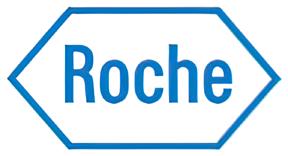
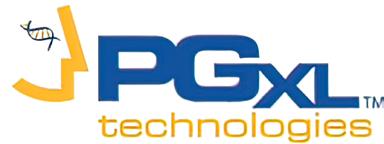

registration, and miscellaneous expenses) to attend the Annual Meeting. Association membership is not a requirement.
The Alexander Feldman Travel Grant is awarded, however, to a Fellow or Associate Fellow in honor of Dr. Feldman’s contributions to the Association on behalf of young clinical scientists.
All five grants will be chosen based on the quality of the submitted abstracts.
Full details can be found on the ACS website at: https:// clinicalscience.org/ , and follow the menu tab “Awards & Lectureships” then “Annual Meeting Travel Grants” or copy/paste this text in your browser window https:// clinicalscience.org/awards/annual-meeting-travel-grants
2023 Individual Donors
The Association wishes to thank with great appreciation the following individuals who made charitable donations to ACS during 2023:
Patron
Juliana Szakacs
Contributors
Clive Hamlin
Charles Hawker
Alex Pappas
Amadeo Pesce
Other
Fayez Bahwerth
President’s Corner
Welcome to the President’s Corner! It is my honor to provide a brief overview on what is happening in the Association of Clinical Scientists (ACS).
Annual Meetings
It was wonderful seeing everyone at the 145th ACS meeting in April in Jacksonville Beach, FL. This meeting was accomplished through the steadfast efforts of the Program Committee, chaired by Jonathan Hoyne, and special thanks to Charlie Hawker, Anara Baimetova, and other members of the Executive Committees (EC).
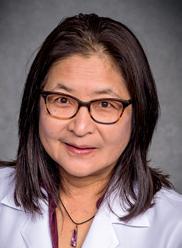
New for ACS
The ACS has more new members who joined recently. We are more active on social media both in LinkedIn and “X” (@ACS_scientists). I encourage all of you to follow this account. We showcase the activities of the Association and its journal, Annals of Clinical & Laboratory Science
This meeting was our 75th year anniversary and the Association invited all past Presidents to join and celebrate this hallmark together. A total of 15 past presidents were in attendance. The meeting theme was “Tomorrow’s Diagnostics and Therapeutics Today.” The historic venue, Casa Marina Hotel, was excellent and cozy, and the scientific presentations and discussions were very active and engaging. The tours to Mayo Jacksonville and Castillo de San Marcos in St. Augustine were fun, despite the heavy storm during the day.
Our next Annual Meeting is scheduled for May 1417, 2025 in Providence, Rhode Island, hosted by Brown University, with Nina Tatevian serving as the Program Committee’s Chair. The venue promises to be outstanding at the historic Hotel Providence, Trademark Collection by Wyndham and the meeting theme will be “Advances in Women’s Health.”
More information can be found on our website at: https://clinicalscience.org/ and follow the tab for “Meetings.”
Young Fellows Section
We are thrilled to extend a warm greeting to all current and future members of our Young Fellows Section. Your presence here signifies a shared commitment to fostering professional growth, forging meaningful connections, and driving innovation in the realm of networking and career advancement.
Our Young Fellows Section Committee serves as a dynamic platform for individuals from diverse backgrounds and expertise to collaborate, exchange insights, cultivate lasting relationships and create pathways for personal and career development. Early-career fellows receive the opportunity to network with other professionals in the field, give presentations, receive awards at our annual meetings and mentorship from more experienced members. To that
We are pleased to announce that the EC voted to increase the number of travel grant awards to attend the Annual Meeting from three to five. The official announcement will be out on the website soon. The EC also has been discussing to place an official mechanism to help mentoring Early Career Professionals. A core identity of the Association is the close relationships developed between its members. We are truly hoping these changes will increase the core value of the ACS, which will result in an increase in attendance of young investigators and early career professionals to the Annual Meetings, and ultimately further improve the scientific level of ACS and the journal.
To that end, if you are reading this newsletter, and are a member, please consider recommending a colleague you know to join the Association. Information on how to join the Association can be found at: https://clinicalscience.org/ and follow the tab for “Membership.”
Finally, we welcome new EC members Mustafa Barbhuiya and Tony D. Maus and new ACS members since April 2024: Zaid Daoud, Liyun Cao, Jose “Eddie” Salazar, Poonam C. Sharma, Yasmen Simonian (Fellows), Bushra Al-Tarawneh, Miguel Carabano, Rita W. Hayes (Associate Fellows) and Preethi Chandrasekaran (Member).
If you have any comments, concerns or ideas you can contact me at sharada@uabmc.edu.
Sincerely,
Shuko Harada, M.D. President (2024-2025)
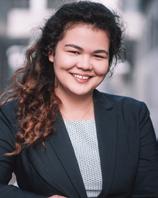
end, we encourage young fellows to submit cases and review articles or original research manuscripts for publication to the Annals of Clinical and Laboratory Science, the journal of ACS. The editorial board is also encouraging trainees to serve as reviewers for the journal, wherein you can be paired with senior reviewers to receive hands-on guidance in the reviewing process.
The association looks forward to working with you all more in the coming months and years. For further information and questions, please do not hesitate to reach out to us in the meantime and we are looking forward to seeing you soon!
Note: The Young Fellows Section will be holding a social event during our upcoming 2025 Annual Meeting in Providence, Rhode Island. This will be a great opportunity to meet up with your peers and members of the association to build networks and to get involved in the association. Further information will be provided closer to the conference. T
Dr. Shuko Harada
Dr. Jessica Claus

Excerpts from Annual Meeting in Jacksonville
by Mustafa Barbhuiya, Ph.D., and Jonathan Hoyne, Ph.D.
The 2024 ACS Annual Meeting, celebrating the 75th year of the Association, was held in Jacksonville, Florida April 2-4. The Program Committee, chaired by Jonathan B. Hoyne, Ph.D., developed an exciting agenda for attendees to both engage with outstanding clinical science and enjoy the usual camaraderie and networking for which ACS meetings are highly noted. The overall meeting theme was Tomorrow’s Diagnostics and Therapeutics Today

The Tuesday morning session theme of “Pathobiology of Neurological Disorders” began with the Abraham J. Gitlitz Honorary Lecture, presented by Dennis W. Dickson, M.D., the Robert E. Jacoby Professor for Alzheimer’s Research at Mayo Clinic, Jacksonville and the winner of the 2011 Potamkin Prize for Research in Pick’s, Alzheimer’s and Related Diseases from the American Academy of Neurology. The Tuesday afternoon program had two sessions: the first with a theme of “Transforming Transplant” and the second on “Tomorrow’s Therapy Today.” There was also a very interesting luncheon presentation by Jorge M. Mallea, M.D., also of the Mayo Clinic Florida on “Machine perfusion: A platform for organ repair and regeneration.”
continued on page 09



Dr. Jonathan Hoyne
Dr. Dennis Dickson presenting the Abraham J. Gitlitz Honorary Lecture “Contributions of Mayo Clinic brain bank to discoveries in neurodegenerative disorders”
A living lung undergoing perfusion in the lung perfusion laboratory at the Department of Laboratory Medicine and Pathology at Mayo Clinic, Florida. The lab tour offered the opportunity to see the process up close.
photo: Michael Hawker
photo: Michael Hawker
photo: Michael Hawker
Jacksonville Excerpts (continued)


continued from page 8
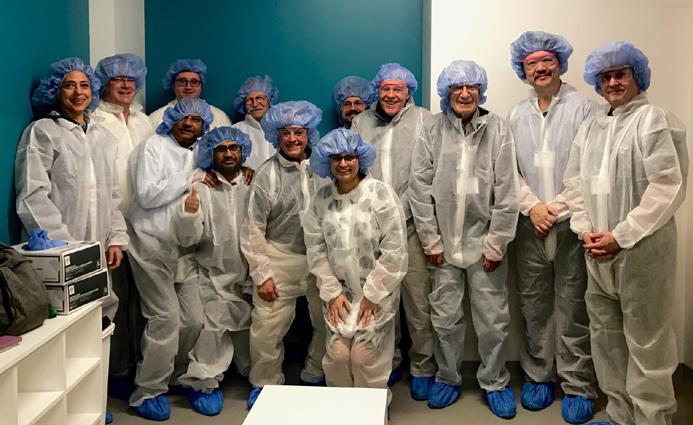


continued on page 10
Dr. Jorge Mallea presenting “Machine Perfusion: a platform for organ repair and regeneration”
A Mayo laboratorian (upper left) guided one of the ACS tour groups through the laboratories at Mayo Clinic, Jacksonville: (left to right) Mustafa Barbhuiya, Roger Bertholf, Sidney Hopfer, Neda Zarrin-Khameh, Charlie Hawker, and Amitava Dasgupta
All gowned up!
One of the ACS tour groups visiting the Mayo Clinic Jacksonville lung perfusion laboratory
photo: Michael Hawker
photo: Michael Hawker
Jacksonville Excerpts (continued)

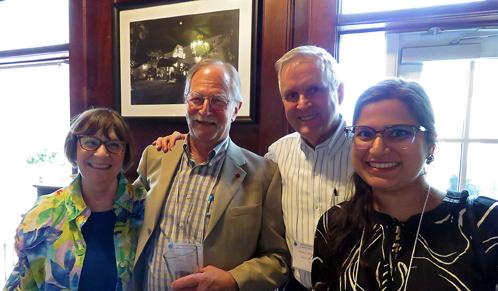

continued from page 09
The Wednesday morning program featured research conducted in the Department of Laboratory Medicine and Pathology at Mayo Clinic in Florida, followed by tours of the laboratories, and of great interest, a tour of the lung perfusion laboratory, where we saw a living lung being perfused. On Wednesday afternoon, the Association’s traditional cultural tour took us by bus to St. Augustine, the oldest permanently occupied city of European origin in the continental United States to tour the Spanish fort, Castillo de San Marcos. The fort is the oldest surviving masonry fortress in the in the continental U.S., built by the Spanish between 1672 and 1695 to defend their claims in the new world. During its long history, the fort was never captured.
continued on page 11
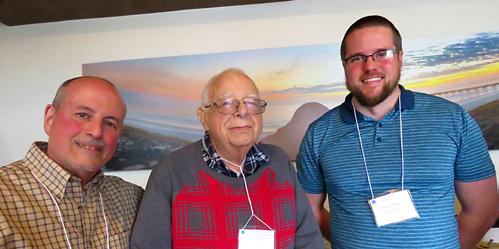

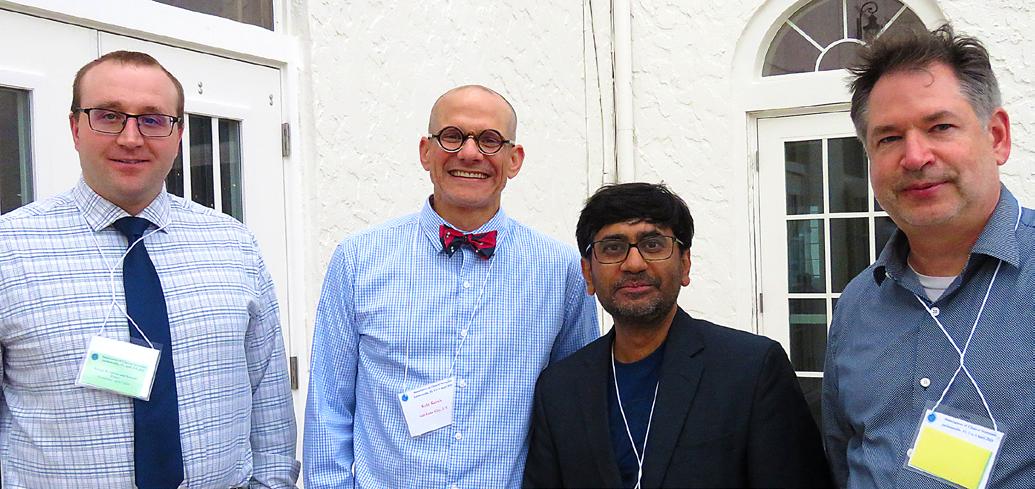
Left: The host hotel was the historic Casa Marina and it welcomed both ACS and Mayo Clinic Jacksonville
Roland Valdes, Amadeo Pesce, and Hunter Miller share a moment at an evening reception
Below: Tony Maus, Kyle Kurek, Mustafa Barbhuiya, and Josh Bornhorst socializing during an evening reception
Above: Adrienne Hopfer and Sidney Hopfer, Roger Bertholf, and Sarrah Lahorewala enjoy a moment at an evening reception
photo: Michael Hawker
photo: Michael Hawker
photo: Michael Hawker
photo: Michael Hawker
Jacksonville Excerpts (continued)

continued from page 10


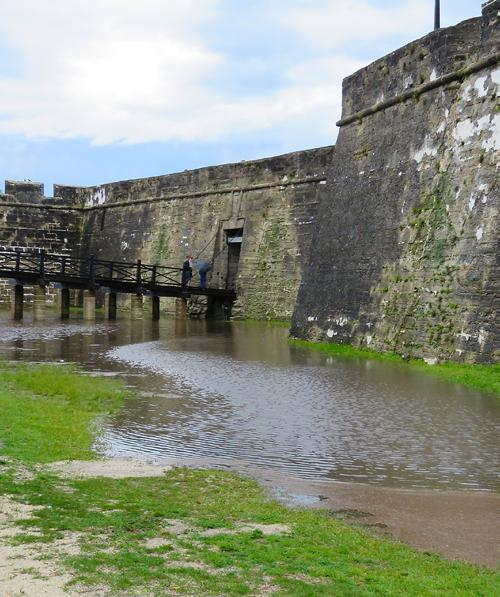

continued on page 12
A passionate docent presented the history of Castillo de San Marcos in St. Augustine, Florida to the ACS cultural tour group.
The recent rains gave the Castillo de San Marcos a water-filled moat that is not very commonly seen by tour groups
ACS office manager Anara Baimetova absorbing the tour of Castillo de San Marcos in St. Augustine, Florida
photo: Michael Hawker
photo: Michael Hawker
photo: Michael Hawker

Jacksonville Excerpts (continued)
At the Annual Reception and Awards Banquet on Wednesday evening, there was a special presentation of the 15 past presidents in attendance. Each past president received a crystal paperweight as a memento of the occasion. In addition to this year’s travel grants, several Association awards were presented, including the Young Clinical Scientist Award to Anthony Maus, Ph.D., the FW Sunderman, Jr., Diploma of Honor to Joshua A. Bornhorst, Ph.D., the Clinical Scientist of the Year Award to Shuko Harada, M.D., and the Gold Headed Cane award to Charles D. Hawker, Ph.D., M.B.A. The Annual Awards Banquet speaker, Russell Brodie of Florida Fish and Wildlife Marine Science Research Institute and Jacksonville University concluded the evening with a lecture on “How Fish are Managed in Florida—an Overview of the Florida Fish and Wildlife Conservation Commission.”
continued on page 13



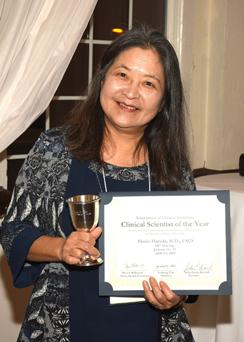
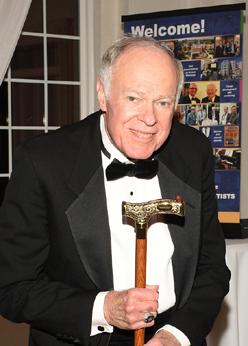
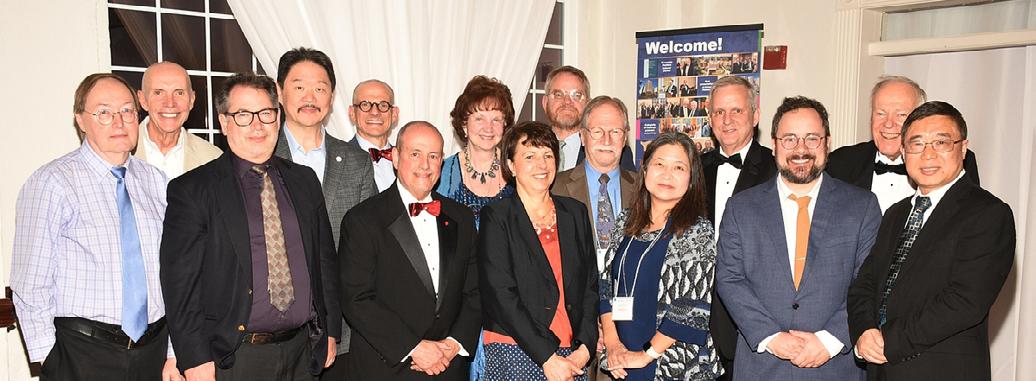

15 ACS presidents of past and present were specially presented with a crystal recognition of their service: (left to right) John Hicks, Robert Hardy, Joshua Bornhorst, Peter Hu, Kyle Kurek, Roland Valdes, Nina Tatevian, Magali Fontaine, Jonathan Hoyne (President Elect), Sidney Hopfer, Shuko Harada, Roger Bertholf, Chris Crutchfield, Charles Hawker, and Yusheng Zu
Dr. Anthony Maus
Dr. Joshua Bornhorst
Dr. Shuko Harada
Dr. Charles Hawker
photo: Laurence Greene
photo: Laurence Greene
photo: Laurence Greene
photo: Laurence Greene
photo: Laurence Greene
photo: Michael Hawker
continued from page 11

Jacksonville Excerpts (continued)

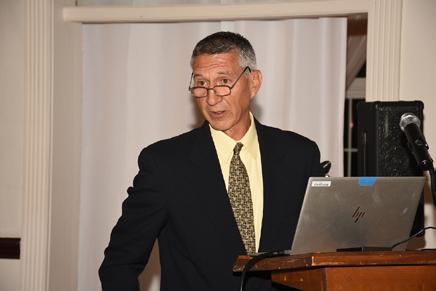


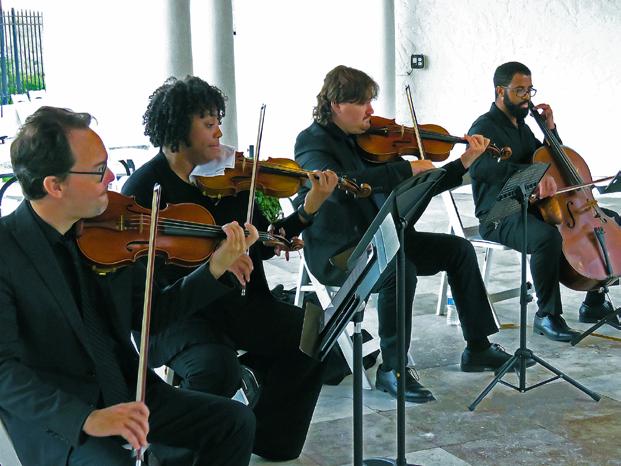
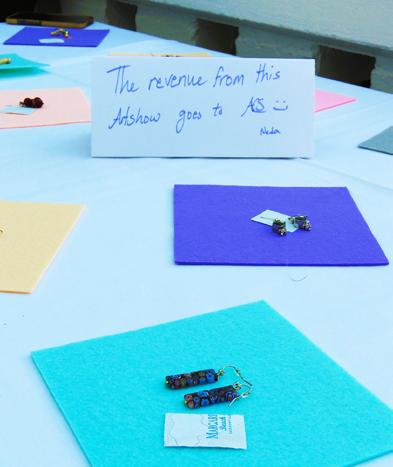
photo: Michael Hawker
photo: Michael Hawker
photo: Michael Hawker
photo: Laurence Greene
Anara Baimetova overseeing the Registration table
Russell Brodie presented at the Awards Banquet
This year’s Awards Banquet Musicale and Art Show featured a string quartet that played predominantly Classical music
This year’s art were jewelry pieces made by Neda ZarrinKhameh with all the revenue proceeds going to ACS
photo: Michael Hawker
Charlie Hawker Reflects on the Honor of the Gold Headed Cane
Dr. Charles Hawker received the Association’s most prestigious award at the Annual Meeting in Jacksonville in April, the Gold Headed Cane. Charlie was the 16th recipient of this award, first presented in 1974 to the Association’s founder, F. William Sunderman, Sr., M.D., Ph.D., coincidentally the same year that Charlie became an ACS member.
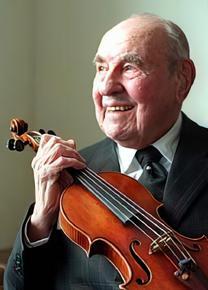
William Sunderman,
“I am truly honored to receive the Gold Headed Cane,” Charlie stated. “When I look at the list of previous recipients of this award, I am in awe of their many contributions in the field of clinical science.”
Charlie was introduced to the Annual Banquet attendees by Roger Bertholf, Ph.D., whose remarks were special to Charlie, in part because he and Roger had been friends for many years, but because Roger began by noting that Roger’s grandfather, Dr. Lloyd M. Bertholf, was President of Illinois Wesleyan University when Charlie had just enrolled as a freshman to major in chemistry. Charlie and Dr. Bertholf met and conversed on at least a few occasions. Small world!
Charlie also notes one other coincidence between himself and Roger. Roger approached Charlie at the 2008 Annual Awards Banquet and, speaking on behalf of the Nominating Committee, invited Charlie to be ACS’s next Vice President (and subsequently President). When Charlie replied that he was honored by the nomination but noted that he had never served on a single ACS committee, Roger said that was all right, as the committee
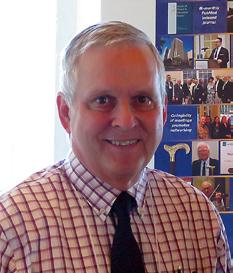
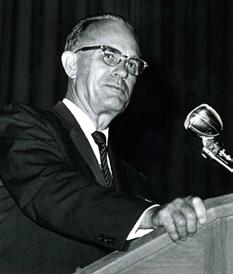
had nominated him for his management experience. Today brings a chuckle to mind, especially to older members who recall that Bill Sunderman, Jr. actually “managed” all the Association’s affairs and that Presidents then (not now) were primarily figureheads.
Charlie was especially appreciative that Roger mentioned the scientific work of which Charlie is probably the proudest of
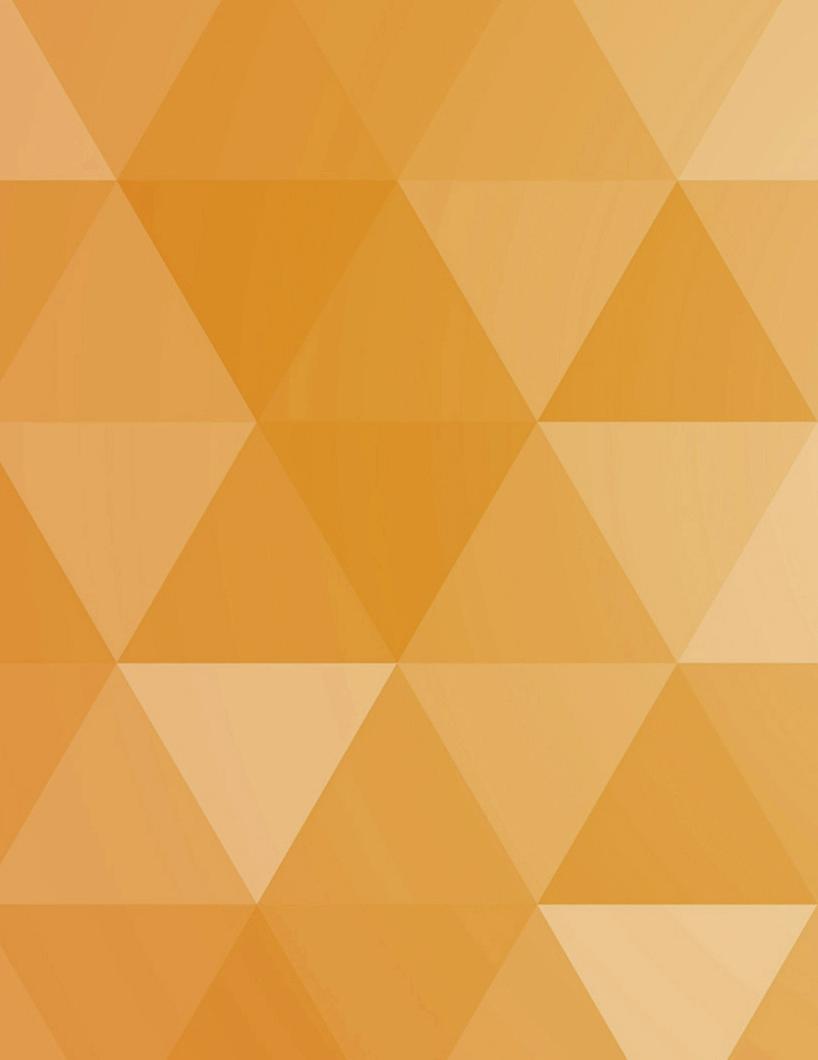
by
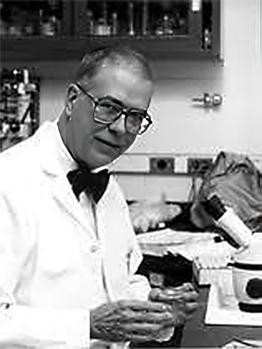
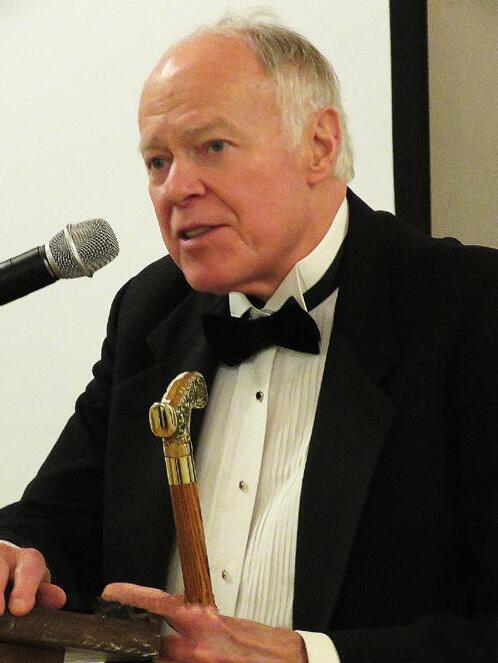
Roger Bertholf (left above) and his grandfather (above right) Lloyd M. Bertholf (1899-2003). The elder Bertholf was president of Illinois Wesleyan University 1958-1968.
Mustafa Barbhuiya, Ph.D., FACSc
F.
Sr., and his beloved violin
Photo courtesy: IWU Historical Collections (Illinois Wesleyan University)
Photo: Michael Hawker
Charlie Hawker receives the Golden Cane Award and addresses the gathered Annual Meeting and Awards Banquet attendees
F. William Sunderman, Jr., in the laboratory
Photo: Michael Hawker
Photo courtesy: The Economist
Photo courtesy: Association of Clinical Scientists continued on page 15

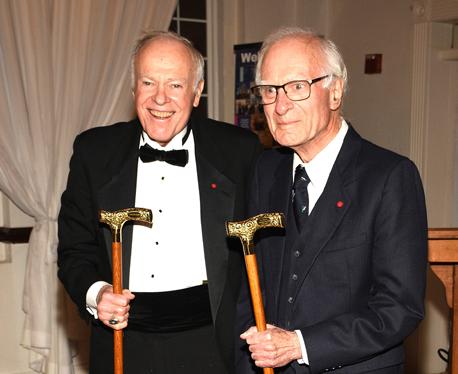
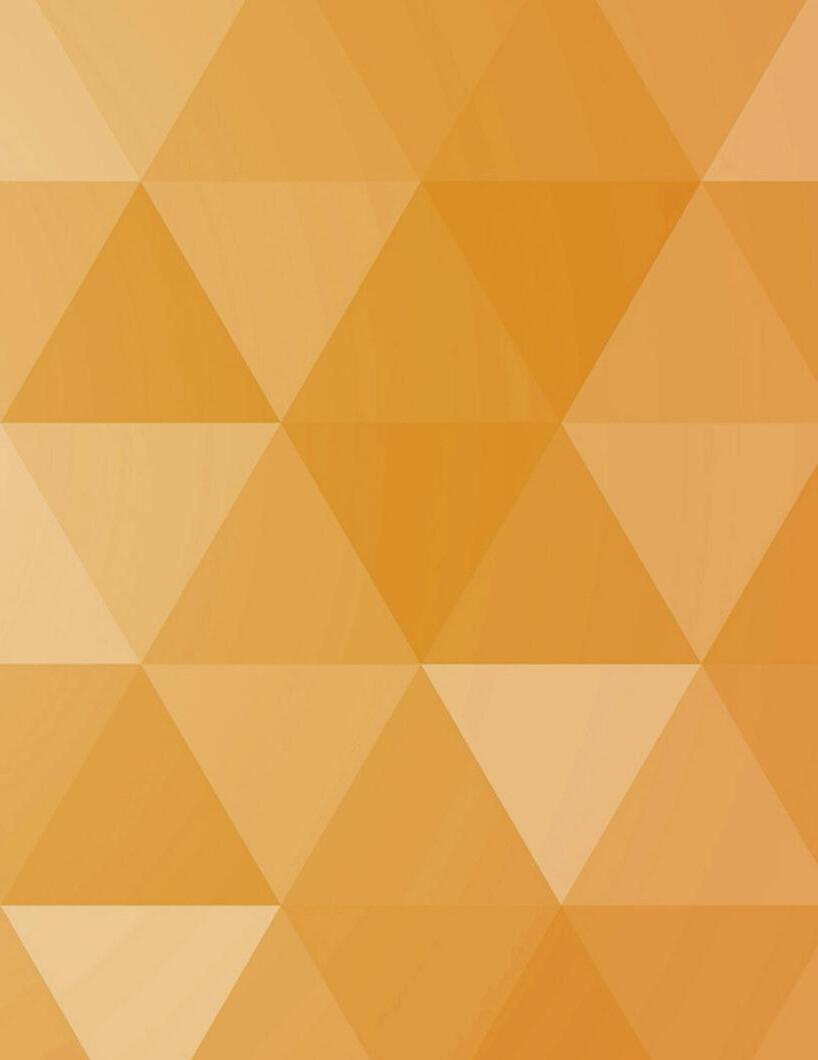
continued from page 14
his career—not having one of the first radioimmunoassays for parathyroid hormone (PTH) in the country, which was the topic of Charlie’s first presentation at an ACS meeting and his first paper in the Annals of Clinical & Laboratory Science, nor heading the automation at ARUP laboratories which lead to ARUP being the first US lab to achieve Six Sigma quality in any metric.
Instead, it was the development of one of the first radioimmunoassays for calcitonin, which led to his lab being the first to identify calcitonin’s molecular precursor, procalcitonin, and the critical discovery that procalcitonin is elevated in patients with toxic shock syndrome or sepsis as it is more commonly known. His paper, published in 1983, preceded most computerized literature searches for patent applications, so his laboratory has not been given the credit (or royalties) they were probably due. Nonetheless, he takes pride in knowing that this work from more than 40 years ago led to a test now commonly performed in many hospital laboratories, significantly contributing to the quality of patient care.
In his remarks to those attending the Annual Awards Banquet, Charlie carefully pointed out, especially for the benefit of younger members, the characteristics that make the Association of Clinical Scientists unique among other clinical laboratory organizations. The collegial atmosphere and warm interactions with other scientists enabled ACS to feel like a “home” to Charlie. In addition to making oral presentations of their work, scientists—young and old— can create new friendships and professional relationships that foster future research projects and career development. He encouraged younger scientists to take advantage of ACS’s opportunities to become involved in the organization’s committees and leadership. Above all, he is most grateful for the opportunities his ACS membership and participation have given him.
Photo: Michael Hawker
The 2024 Gold Headed Cane was presented to Dr. Charles D. Hawker
Dr. Charles Hawker poses with Dr. Clive Hamlin, the Gold Headed Cane recipient in 2019
photo: Laurence Greene
Interview: Dr. Magali Fontaine
The Young Fellows Section arranges interviews between Young Fellows and more senior Fellows. Young Fellows can obtain scientific and career advice from a senior member who may offer valuable guidance. This interview of Magali Fontaine, M.D., Ph.D., FACSc. was conducted by Jessica Claus, M.D., Chair of the Young Fellows Section Oversight Committee.
Dr. Fontaine served the Association as President in 2011-2012. She presented the 2014 Abraham J. Gitlitz Memorial Lecture entitled The Most Significant Changes in Blood Banking in the Last Ten Years.
Jessica Claus: Please tell me a little bit about yourself. Where did you grow up? Where did you go to school?
Magali Fontaine: I was born in France and grew up internationally having moved between France, Belgium and the USA. I went to medical school in Paris, France and received my M.D. degree from the University of Paris V Renee Descartes. I completed a combined residency in clinical pathology with a PhD in Islet Cell Transplantation from the University of Illinois at Chicago. Lastly, I completed a one-year fellowship in Transfusion Medicine at the Mayo Clinic in Rochester, MN.
Claus: How did you develop an interest in science and medicine?
Fontaine: At an early age, I became interested in becoming a medical doctor because I love taking care of people. But I particularly became interested in science during my second year of Medical School, while studying immunology. The field of immune cell interaction and signaling through the T cell receptor was at its infancy and was fascinating to me.
Claus: Tell me about your career progression. Did your career progression exceed your expectations?
Fontaine: My career progressed over the last 35 years and yes it was an amzing journey, one that I could not have expected. My current position is Professor of Pathology and Medicine at the University of Maryland School of Medicine and Medical Director of Transfusion Services at the University of Maryland Medical Center (UMMC) which is a tertiary medical care center with complex clinical services.
I have been serving in that position since 08/01/2013, after having served for 9 years as Assistant Professor and Associate Medical Director of the Transfusion Service at the Stanford University Medical Center. At both Stanford and UMMC the Transfusion Service supports a level 1 trauma center, adult and pediatric hematopoietic cell and solid organ transplant as well as adult and pediatric cardiovascular medical and surgical services. At both institutions, my clinical contributions have been focused in management of the blood supply chain, prevention of transfusion adverse events, and in implementing patient blood management strategies.

But I consider myself a true physician scientist with both clinical and scientific contributions. My scientific contribution lies at the intersection of transfusion medicine and transplantation. My contributions are a continuation of my post-doctoral training spent at Harvard Medical School, where I was mentored by pioneers in tissue engineering, Drs. Langer and Vacanti, optimizing new techniques of hepatocyte transplantation for end stage liver diseases in neonates. I then moved to the University of Illinois in Chicago (UIC) to complete a combined residency in surgery and clinical pathology with a PhD degree in pancreatic islet transplantation for patients with type 1 diabetes (T1D) and contributed to the development of the islet cell transplant program at UIC. But islet cell transplantation success rates have been limited by islet cell death during the engraftment period, followed by a long-term decline in islet function and viability. To address these issues, I embarked on a collaborative effort with Dr David Kaplan, Chair of Bioengineering at Tufts University. Through this collaborative effort, my laboratory tested biomaterials such as silk-based hydrogel to safely deliver islet cells for transplantation, enhancing islet cell survival and function
continued on page 17
Dr. Magali Fontaine
Dr. Fontaine Interview continued
while preventing or minimizing inflammatory mediated cell damage in vivo.
Claus: How did mentorship influence your professional career? How did you get involved in the Association?
Fontaine: My mentors have influenced my professional career, starting with my PhD mentors in organ transplantation and advising me to pursue Training in Transfusion Medicine because of the overlap in compatibility testing required for blood transfusion. Indeed, both disciplines in blood transfusion and in organ transplantation require similar knowledge base in immunology for compatibility testing.
I got involved by the association after being invited to present my research on islet cell transplantation at the ACS Annual meeting in 2002 in Salt Lake City, Utah.
Claus: What unexpected turns did you have in your career?
Fontaine: I always thought I’d become a transplant surgeon but I am now a pathologist and Director of the Transfusion Service at one of the busiest trauma and Transplant center in the country.
Claus: How has ACS helped you in your career?
Fontaine: ACS has given me the opportunity to present my science at a national meeting where I received amazing feedback and made life long friends and colleagues. I returned almost every year to the annual meeting to present and publish my work.
I also became involved in the leadership of the association. Indeed, I was invited to serve on the ACS board and eventually served as President. This opportunity has given me the experience serving on a board and later on I was invited to serve on the board of the Association for the Advancements of Blood and Biotherapies, previously known as AABB.
Claus: Did you have any instances where mentors influenced your professional career? How did they influence you?
Fontaine: My mentors have influenced my professional career, starting with my PhD mentors in organ transplantation and advising me to pursue Training in Transfusion Medicine because of the overlap in compatibility testing required for blood transfusion. Indeed, both disciplines in blood transfusion and in organ transplantation require similar knowledge base in immunology for compatibility testing.
continued from page 16
More recently I was mentored and advised to research on the understanding of red blood cell (RBC) immunosuppressive properties through studies on the RBC surface glycobiome.
Claus: Describe the importance for faculty to be involved in national/international organizations and to have administrative responsibilities outside of their current institutions. How did you develop your network of colleagues over the years? How critical has this been towards success in your career?
Fontaine: My network of colleagues was developed by establishing collaborations after presenting my work at national meetings, such as ACS. At national meetings one can be involved in administrative committees, meet people across disciplines, network, and have important conversations that reinforces these collaborations.
Claus: What advice would you give to someone starting out in their career in clinical chemistry/laboratory medicine? What advice would you give someone at the Associate Professor level in their career?
Fontaine: My advice to someone at the Associate Professor level is to continue to be curious in science and excellence in clinical achievement, to mentor students and teach them the importance of pursuing a career in academic medicine which is the playground for medical innovation.

Dr. Magali Fontaine presents “Transfusion Related Immunomodulation” at the 2024 Annual Meeting in Jacksonville, Florida
Association of Clinical Scientists Minutes
Annual Membership Business Meeting
Casa Marina Hotel, Jacksonville, Florida, April 4, 2024
1. Dr. Zhu called the meeting to order at 12:01 pm.
2. Members attending included: Roger Bertholf, Joshua Bornhorst, Jessica Claus, Chris Crutchfield, Karen Eldin, Erica Fatica, Magali Fontaine, Clive Hamlin, Shuko Harada, Robert Hardy, Charles Hawker, John Hicks, Jonathan Hoyne, Peter Hu. Kyle Kurek, Sarrah Lahorewala, Christopher Marquez, Anthony Maus, Hunter Miller, Emily Ryan, Nina Tatevian, Roland Valdes, Neda Zarrin-Khameh, and Yusheng Zhu. Per the Association’s Constitution and Bylaws these 24 members constituted a quorum. Non-members attending included: Bushra AlTarawneh, Benjamin Andress, Miguel Carabano, Michael Hawker, and Rita Hayes.
3. Approval of 2023 Business Meeting Minutes: The minutes of the 2023 Business Meeting were submitted by Dr. Hoyne (Secretary). The minutes were reviewed by those in attendance and were unanimously approved following a motion by Dr. Bornhorst and a second by Dr. Hoyne.
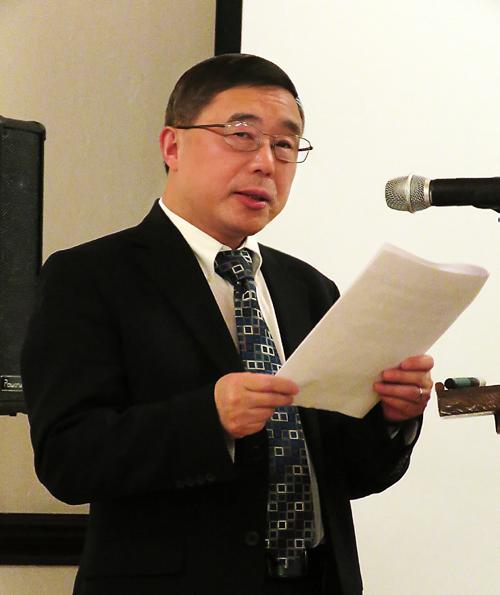
4. Treasurer’s Report: Erica Fatica reported that we are really in good shape, at an all-time high, just over half a million. Major income sources are journal subscriptions and meeting attendance. Major expenses include payroll, journal publication, and Annual Meeting expenses. The investment fund has $447,015 and the total fund balance is $543,079.
5. Membership Report: Dr. Harada described the Association’s four categories of membership: Members (do not have MD or PhD, but are actively involved in clinical laboratory science), Associate Fellows (individuals in training), Fellows, and Emeritus Fellows (for individuals who have been Fellows for 10 years and are older than 70-years-old). Having a sponsor is required to apply for membership. The sponsoring member should be active. She mentioned that we have 69 active members, 63 are regular Fellows and 5 are Associate Fellows. She was happy to report that we had 11 new members last year and 5 of them are attending the meeting.
continued from page 19
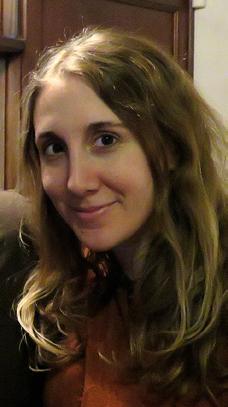
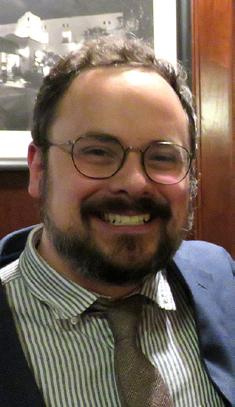
(left) Dr. Yusheng Zhu presides over the 2024 Annual Membership Business Meeting
Dr. Erica Fatica Dr. Christopher Crutchfield
Photo:
Meeting Minutes...
6. Annual Meetings:
a. Jacksonville April 1-4, 2024–Program chair, Dr. Hoyne reported that the meeting is going well and we have more for the rest of the day. The Young Fellows Section had dinner in a Mexican restaurant and more guests attended than what was planned. Although it was raining, the tour to St. Augustine went well. Tomorrow night we will have the Musicale and Art show. A string quartet will play for 50 minutes, followed by 20 minutes break and another 50 minutes of performance.
b. Providence May 14-17, 2025–Dr. Tatevian mentioned that it is beautiful weather in Rhode Island. She showed a PowerPoint file with pictures from Brown University and cultural activity at Newport. The topics will be prenatal testing and women health. A special lecture will be on malaria vaccine. The Musicale will be in the church across from the hotel. There will be a tour at the Medical School. The Annual Awards Banquet will be on Friday. 115 room nights are reserved at the Providence Hotel, which is walkable. It is a small hotel and will be dedicated to us.
c. Chicago 2026, May 20-22–Dr. Crutchfield mentioned that he secured support from the Department of Pathology. The meeting will be at Hyatt Centric Hotel in Chicago, which is in downtown and has a bridge to the hospital. The meeting is the Wednesday-Friday before the Memorial Day weekend, so people can optionally stay longer. He plans to add a Tuesday afternoon session to increase residents’ exposure and have vendor presentations. One topic will be molecular brain tumor assay. There are a lot of good museums and for the afternoon cultural tour we will take the Architectural Boat Tour on the Chicago River.
d. Future meeting possibilities: Cincinnati 2027 and Salt Lake City 2028.

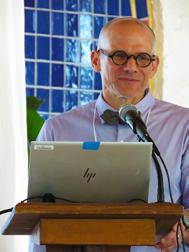
from page 18
7. Annals of Clinical & Laboratory Science Journal report: Kyle Kurek will be the new Editor-in-Chief and Nina Tatevian will be the Senior Associate Editor. Dr. Tatevian has been the Editor-in-Chief for 13 years. The number of submissions increased from 582 in 2021 to 914 in 2022 and 1117 in 2023. By implementing the submission fee of $40 in late 2023 the number of submissions decreased, perhaps because of elimination of manuscripts from paper mills. Our net income from the journal was $40,000. We had rejection rate of 85%, which is improved now and the estimate is about 200-300 manuscript submission each year.
Dr. Kurek talked about some of the things that need to be changed to improve the journal, which include reviewing the editorial board and that would be the focus for the next year. It was suggested that each member submit papers to improve the quality of the journal. Maybe we can eliminate print edition, which will potentially save $8,000 - $10,000 each year. We will maintain the $40 submission fee. We are using safeguards against AI, although we think AI may improve grammar and can be allowed there.
We changed our publishing company from Highwire that is based in India to KGL. Highwire changed its cost from $38,500 to $45,000, plus they wanted us to pay for a system conversion. KGL has a $25,000 annual fee, $5,000 cost of migration and $8,000 for setup and development. It covers 120 articles and 6 issues a year, which is our current schedule.
Dr. Kurek explained some new improvements:
a. Reinvest some of the above savings into advertising for US author submissions
b. Training programs, pathology & lab meetings
c. Very few PubMed indexed journals still take small series.
d. Work with social media to highlight new issues and key papers
e. Short summaries and bullet points

Dr. Nina Tatevian
Dr. Kyle Kurek
Dr. Zhu and Dr. Zarrin-Khameh listen to committee reports
Photo: Michael Hawker Photo: Michael Hawker
Photo: Michael Hawker
continued from page 19
8. Digital Marketing Updates: We have had more interest in our digital posts since last year. Erica Fatica has made many LinkedIn posts, but has only been marginally successful. She recommends that everyone should tag them and repost the highlights from the newsletter. Jessica Claus uses Twitter to get connected to younger fellow and post some updates, abstract submission, and the Annual Meeting.
9. Newsletter: Mustafa Barbhuiya is the new Newsletter editor. He is starting as of this meeting and his first newsletter issue will be in September. Dr. Hawker will be mentoring him. Michael Hawker, who is the Association’s graphic designer, is here to see what we do and meet the members, which will assist him in future newsletter issues.
10. Website: Dr. Hawker mentioned that our website has been converted to a new Drupal platform. Although the operating features are the main reason for the change, visitors to the website will notice larger fonts and brighter colors, which makes it more attractive and easier to read. He was excited to announce that we now have a membership directory on the website, but it is only available to the members, so they will have to sign in to be able to access it. The username is your email address, and you can set your password the first time you use it.
11. Young Fellows Section: Jessica Claus, Chair of the Young Fellows Section, remarked on the success of the Tuesday evening dinner for young scientists and prospective members. The YFS had 13 young fellows last year and now we have 22. Hopefully, it will be more next year.
12. Nominating Committee Report—election of officers and new members of Executive Committee: Chris Crutchfield reported on the two positions to be elected: Vice President and a Member of the Executive Committee for a two-year term. He used an email poll of the Nominating Committee to identify the nominees for these two positions: Alicia Algeciras-Schimnich is nominated for Vice President and Mustafa Barbhuiya is nominated as Member of the Executive Committee. Charlie Hawker moved to close nominations and Jonathan Hoyne seconded the motion.
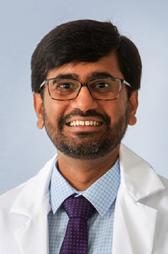
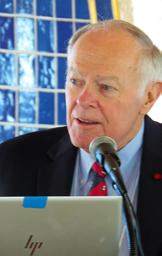
13. Installation of new president and new president’s comments: Dr. Zhu thanked everyone, especially the initiatives of LinkedIn and Twitter by Erica Fatica and Jessica Claus, respectively. He mentioned that we have more members and more visibility resulting from the improved website; he thanked Charlie Hawker and Chris Crutchfield for their work. He thanked Jonathan Hoyne for this great 75th Anniversary Annual Meeting, which included honoring our past presidents. He thanked all of those attending. He was honored to pass over the gravel to Dr. Harada. Dr. Harada mentioned that she was honored to accept the gravel on the 75th year of the association. She also thanked Jonathan for organizing the meeting. Dr. Zhu said: “everyone worked hard to keep the tradition, add new things and make the association better”. He thanked the executive members and everyone who attend the meeting. He thanked Charlie and Anara for their contributions.
14. Awards Committee Report: Dr. Hawker spoke on behalf of Myra Wilkerson who could not attend. At the 2025 Annual Meeting in Providence, the FW Sunderman, Jr. Diploma of Honor will be presented to Peter Hu, PhD; the Clinical Scientist of the Year Award will be presented to Philip Foulis, MD, MPH; and the Gold-Headed Cane Award will be presented to Nina Tatevian, MD, PhD. The winner of Young Clinical Scientist award will be determined from this afternoon’s presentations and announced at the Musicale this evening.
15. Adjournment: The Meeting was adjourned at 13:05.
Respectfully submitted,
Neda Zarrin-Khameh, M.D., M.P.H., FACSc Secretary
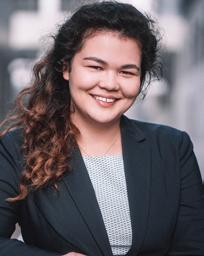
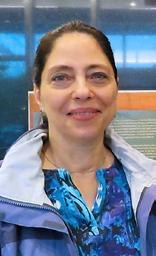
Dr. Mustafa Barbhuiya Dr. Charles Hawker
Dr. Jessica Claus
Dr. Neda Zarrin-Khameh
Photo: Michael Hawker
Photo: Michael Hawker
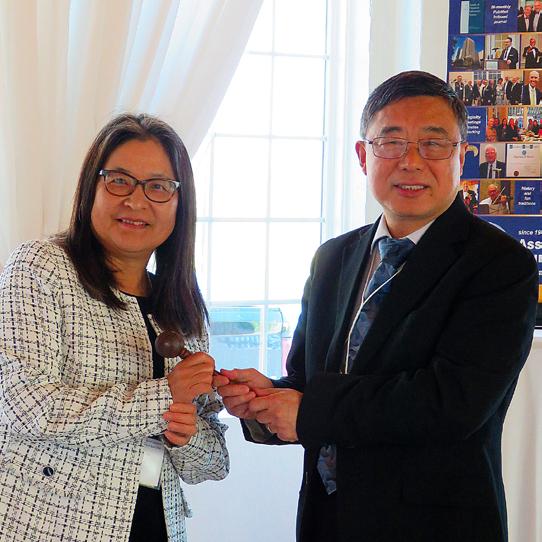

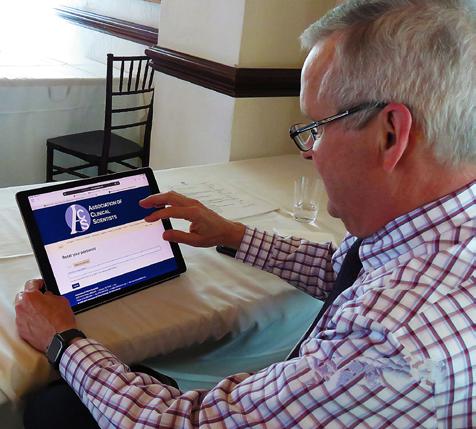

Dr. Shuko Harada receives the gavel from Dr. Yusheng Zhu
Dr. Shuko Harada addresses the Business Meeting attendees
Photo: Michael Hawker
Photo: Michael Hawker
Photo: Michael Hawker
Photo: Michael Hawker
Trivia Editor Wanted!
Dr. Stephen Roper has indicated that he cannot continue doing the Trivia Column in the newsletter.
The Association greatly appreciates his service in editing this column for the past six years (since September, 2018).
If you would like to serve in this capacity of Trivia Column Editor in future issues (an ideal activity for a younger member!), ACS would be delighted to utilize your knowledge of clinical laboratory science.
Mustafa Barbhuiya stepped up for this issue! Who can next step up?
Please email Mustafa Barbhuiya at: mustafa. barbhuiya@baystatehealth.org.
The Grapevine:
New Members
FELLOWS
Linnea Baudhuin, Ph.D., FACSc Professor of Laboratory Medicine Mayo Clinic Rochester, MN
Emily L. Ryan, Ph.D., FACSc Technical Director Advocate Clinical Laboratory Macon, GA
Hidehiro Takei, M.D., FACSc Professor, Director of Surgical Pathology University of Texas Health Science Center at Houston Houston, TX
Imad Tarhoni, M.D., M.S., Ph.D., FACSc Lead Scientist, Assay Development, Department of Pathology Rush University Medical Center Chicago, IL
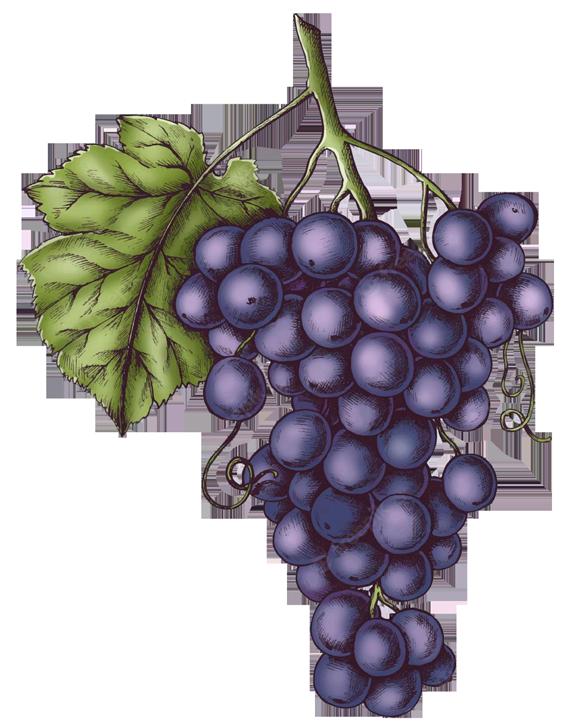
Newsletter Trivia Question
Edited by Mustafa Barbhuiya, Ph.D., FACSc
The first person to email the correct answer will have their name mentioned in the following newsletter and the satisfaction of knowing they won. Please respond to, or if you have a trivia question you would like to submit, please email to Mustafa Barbhuiya at: mustafa.barbhuiya@baystatehealth.org.
PREVIOUS qUESTION
(submitted by Dr. Stephen Roper)
In the Jendrassik-Grof method for bilirubin measurement, a colored product proportionate to the bilirubin concentration is formed using diazotized sulfanilic acid. In the 1980s, which researcher introduced the use of caffeine as an accelerator to enhance the reaction’s sensitivity and speed with unconjugated bilirubin?
ANSWER
The answer was correctly submitted by Neda Zarrin-Khameh, MD. Congratulations Neda! The answer: L. Mori (PMID 699298).
CURRENT qUESTION
(submitted by Dr. Mustafa Barbhuiya)
A 36 y/o woman with centripetal obesity, hypertension, stria, diabetes, and osteoporosis is evaluated:
ASSOCIATE FELLOWS
Hunter Allan Miller, Ph.D. Clinical Chemistry Fellow University of Louisville Louisville, KY
Based on the above lab data, what is the most likely diagnosis?
A) Cortisol-producing adrenal tumor
B) Incidentoma
C) Bilateral adrenal hyperplasia
D) Cushing disease
E) Ectopic ACTH ANSWER
The answer will appear in the next Clinical Science Trumpet. The person submitting the first correct answer will have a chance to write the trivia question for the subsequent newsletter. Submit your answer by email to Mustafa Barbhuiya, Ph.D., at: mustafa.barbhuiya@baystatehealth.org.
Officers & Executive Committee
Shuko Harada, MD, FACSc
President
Jonathan B. Hoyne, PhD, DABCC, FADLM, FACSc
President Elect
Alicia Algeciras-Schimnich, PhD, FACSc Vice-President
Yusheng Zhu, PhD, DABCC, FADLM, FACSc
Past President
2024-2025
PAST PRESIDENTS COUNCIL
Joshua A. Bornhorst, PhD
Christopher Crutchfield, PhD
Keri J. Donaldson, MD, MSCE
Philip R. Foulis, MD, MPH
Robert W. Hardy, PhD
Charles D. Hawker, PhD, MBA
M. John Hicks, MD, DDS, PhD
Peter C. Hu, PhD
Robert L. Hunter, Jr., MD, PhD
Kyle C. Kurek, MD
Roland Valdes, Jr., PhD
Myra L. Wilkerson, MD
Yusheng Zhu, PhD
ATHLETICS COMMITTEE
Joshua A. Bornhorst, PhD, Chair
Robert L. Hunter, Jr., MD, PhD
Consolato M. Sergi, MD, PhD
Neda Zarrin-Khameh, MD, MPH
AWARDS COMMITTEE
Myra L. Wilkerson, MD, Chair
Philip R. Foulis, MD, MPH
Charles D. Hawker, PhD, MBA
Nina Tatevian, MD, PhD
Alicia Algeciras-Schimnich, PhD M. John Hicks, MD, DDS, PhD
CONSTITUTION AND BYLAWS COMMITTEE
Alicia Algeciras-Schimnich, PhD, Chair
Vincent A. DeBari, PhD
Laurence N. Demers, PhD
Clive R. Hamlin, PhD
Charles D. Hawker, PhD, MBA

Clinical
Neda Zarrin-Khameh, MD, MPH, FACSc Secretary (2023-26)
Erica M. Fatica, PhD, FACSc Treasurer (2022-25)
Mustafa A. Barbhuiya, PhD, FACSc Member, Executive Committee (2024-26)
Anthony D. Maus, PhD, FACSc Member, Executive Committee (2024)
Jessica Claus, MD Chair, Young Fellows Section Oversight Committee
Kyle C. Kurek, MD, FACSc Journal Editor-in-Chief
Nina Tatevian, MD, PhD, FACSc Director of Scientific Sections
Charles D. Hawker, PhD, MBA, FADLM, FACSc Executive Director (non-voting)
MEMBERSHIP AND MENTORING COMMITTEE
Jonathan B. Hoyne, PhD, Chair
Alicia Algeciras-Schimnich, PhD
Meenakshi Bidwai Bhattacharjee, MD
Roger Bertholf, PhD
Peter C. Hu, PhD
Consolato M. Sergi, MD, PhD
Roland Valdes, Jr., PhD
Myra L. Wilkerson, MD
MUSIC AND ARTS COMMITTEE
Myra L. Wilkerson, MD, Chair
Jessica Claus, MD
Henry Oh, PhD
Neda Zarrin-Khameh, MD, MPH
NOMINATING COMMITTEE
Yusheng Zhu, PhD, Chair
Philip R. Foulis, MD, MPH
Robert W. Hardy, PhD
M. John Hicks, MD, DDS, PhD
Kyle C. Kurek, MD
Myra L. Wilkerson, MD
PUBLICATIONS COMMITTEE
Kyle C. Kurek, MD, Chair
Nina Tatevian, MD, PhD, Co-Chair
Mustafa Barbhuiya, PhD
Vincent A. DeBari, PhD
M. John Hicks, MD, DDS, PhD
Yusheng Zhu, PhD, MS
Sarrah Lahorewala, PhD
Bing Yu, MD, PhD
John Parker, MD
The Clinical Science Trumpet Newsletter is the official newsletter of the Association of Clinical Scientists and is published three times per year. Back issues may be viewed at: http://clinicalscience.org/news.html . Announcements, commentaries, and news/photos of members are welcome. Please send to the Editor at: mabarbhuiya@faed.in.
PROGRAM COMMITTEE (MAY, 2025 ANNUAL MEETING)
Nina Tatevian, MD, PhD, Chair
Liang Cheng, MD
Jessica Claus, MD
Kyle Kurek, MD
Jonathan Kurtis, MD
Geralyn Messerlian, MD
James Sung, MD
Evgeny Yakirevich, MD
Christopher Crutchfield, PhD
Charles D. Hawker, PhD, MBA (ex-officio)
YOUNG FELLOWS SECTION OVERSIGHT COMMITTEE
Jessica Claus, MD, Chair
Anthony D. Maus, PhD
Sarrah Lahorewala, PhD
Mustafa Barbhuiya, PhD
VIRTUAL AND HYBRID MEETINGS OVERSIGHT COMMITTEE
Jonathan B. Hoyne, PhD, Chair
Christopher Crutchfield, PhD
Shuko Harada, MD
Robert W. Hardy, PhD
Charles D. Hawker, PhD, MBA
M. John Hicks, MD, DDS, PhD
Consolato M. Sergi, MD
Roland Valdes, Jr., PhD
Publisher: Association of Clinical Scientists
Editor: Mustafa B. Barbhuiya, PhD, FACSc
Addit’l Copyediting: Charles D. Hawker, PhD, MBA, FACSc
Graphic Editor: Michael Hawker, MArch, MS, AIA, ACA (Adobe Certified)





